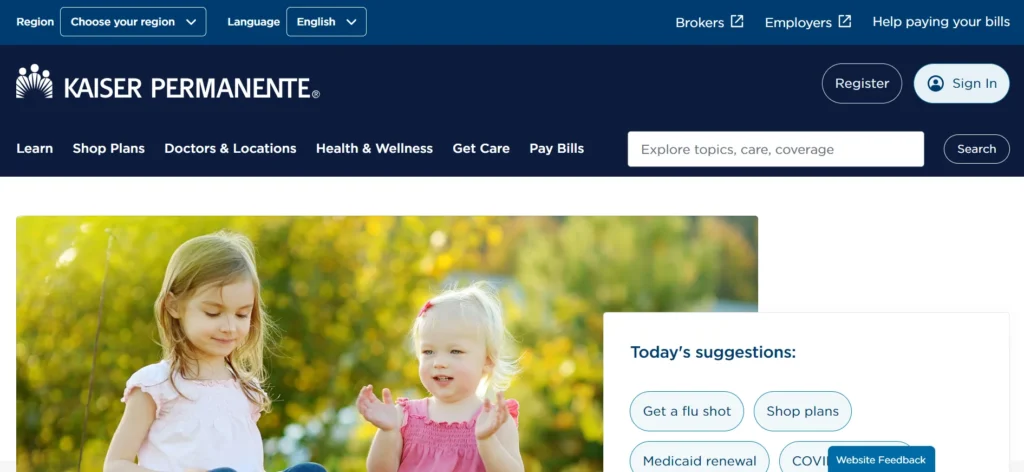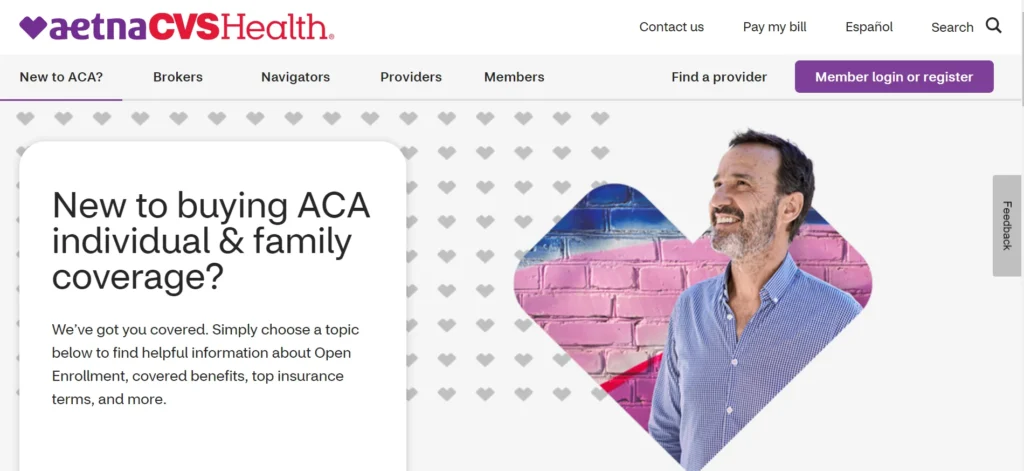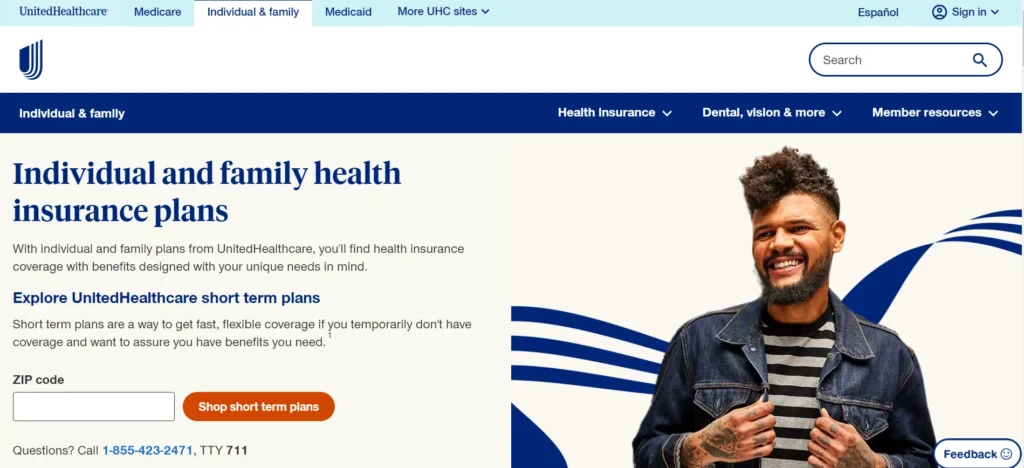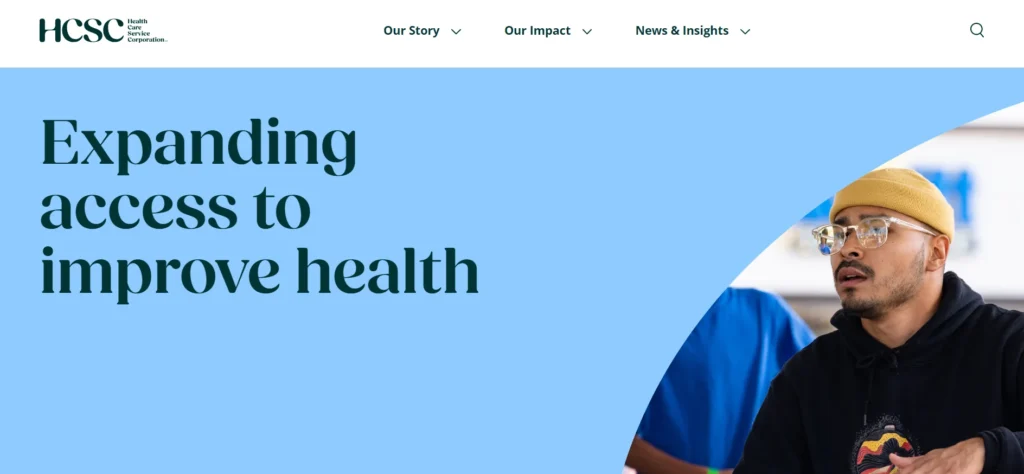Best Health Insurance Vendors of 2024: A Comprehensive Guide

In 2024, the U.S. health insurance market is projected to reach $1.5 trillion, reflecting a compound annual growth rate (CAGR) exceeding 6%.
This expansion underscores the critical importance of selecting a health insurance provider that offers comprehensive coverage, affordable premiums, and services tailored to individual needs. With over 5,900 insurance companies operating nationwide, including major players like UnitedHealthcare, Anthem, and Aetna, consumers face a complex landscape when choosing the right provider.
This guide highlights the top health insurance vendors for 2024, focusing on customer satisfaction, coverage options, affordability, and unique features.
Table of Contents
Why Choosing The Right Health Insurance Vendors Matters?
Selecting the best health insurance vendor is crucial because it directly impacts your access to healthcare, costs, and the quality of services. The following key factors should be considered when making this decision:
- Coverage Area: Not all providers offer nationwide coverage. Some may operate only in specific regions or states.
- Network Size: Providers with large networks give you access to more hospitals and specialists, increasing flexibility.
- Plan Types: Vendors offer different types of plans, including HMO, PPO, EPO, and Medicare Advantage. Each has varying levels of flexibility and costs.
- Costs: Consider not just premiums, but also deductibles, copays, and out-of-pocket maximums.
- Customer Service: Efficient customer service is critical for resolving claims, billing issues, and answering any coverage-related questions.
Your needs may vary depending on whether you are seeking individual coverage, family, or senior coverage. Choosing a vendor that matches your specific healthcare and financial needs will ensure better coverage, more comprehensive benefits, and improved peace of mind.
Best Health Insurance Vendors In US: You Must Know In 2024
Here are the top health insurance vendors of 2024, carefully evaluated based on their plan offerings, customer satisfaction, ratings, pros, cons, and ideal user profiles.
1. Kaiser Permanente:

Kaiser Permanente is an integrated healthcare system that offers both health insurance and healthcare services. Its HMO plans ensure a seamless healthcare experience, with all services managed within the Kaiser network of hospitals and physicians.
- Pros: High customer satisfaction, affordable premiums, integrated healthcare services.
- Cons: Limited to specific states (such as California and Colorado), offers only HMO plans, restricting out-of-network care.
- Ratings: 4.2/5, praised for preventive care and in-network services.
- Ideal User Profile: Ideal for individuals in states where Kaiser operates and for those seeking coordinated preventive care.
2. Aetna:

Aetna is a nationwide provider known for its wide range of plans, including HMO, PPO, and Medicare Advantage. Its strong Medicare Advantage offerings, coupled with a large provider network, make it a reliable choice.
- Pros: Flexible plan options, extensive provider network, strong Medicare Advantage offerings.
- Cons: Some issues with claims processing and customer service.
- Ratings: 3.8/5 for plan flexibility, with a 4.0/5 for customer satisfaction on Medicare plans.
- Ideal User Profile: Best for individuals and families looking for variety in plan types and access to a large healthcare network.
3. Oscar Health:

Oscar Health is a modern health insurance company that stands out for its tech-driven approach. It offers easy access to telemedicine services and a highly-rated mobile app that helps users manage their healthcare.
- Pros: User-friendly technology, strong telemedicine services, rewards for healthy behaviors.
- Cons: Limited availability in only 18 states, lower customer satisfaction overall.
- Ratings: 2.75/5, despite lower customer satisfaction, it is praised for its digital-first services.
- Ideal User Profile: Best for tech-savvy individuals who prefer managing their healthcare via digital platforms and prioritize telemedicine.
4. Blue Cross Blue Shield (BCBS):

Blue Cross Blue Shield is one of the largest and most reliable health insurance providers in the U.S. It offers extensive nationwide coverage through its regional affiliates and provides HMO, PPO, and Medicare Advantage plans.
- Pros: Nationwide coverage, flexible plan options, and comprehensive Medicare plans.
- Cons: Varying costs across states, high out-of-network fees under PPO plans.
- Ratings: 3.64.1/5, depending on the region. Customer satisfaction ratings remain strong, especially for Medicare services.
- Ideal User Profile: Best for individuals and families seeking comprehensive nationwide coverage and a variety of plan options.
5. Cigna:

Cigna provides both domestic and international health coverage, making it an excellent choice for individuals who travel or need global coverage. The company also excels in offering comprehensive mental health support and a wide network of providers.
- Pros: Strong mental health support, flexible plan offerings, large provider network.
- Cons: Higher premiums for more comprehensive plans, especially those with lower deductibles.
- Ratings: 3.6/5 overall, with strong customer satisfaction for mental health services (4.0/5).
- Ideal User Profile: Ideal for individuals seeking extensive mental health support and global healthcare options.
6. UnitedHealthcare (UHC):

UnitedHealthcare is one of the largest health insurance providers in the U.S. and offers a wide variety of plans, including HMO, PPO, and EPO. It is known for its large provider network and wellness programs.
- Pros: Extensive provider network, strong wellness and telehealth programs, and variety of plan types.
- Cons: Higher premiums for out-of-network services, particularly in PPO plans.
- Ratings: 4.0/5 for overall satisfaction, wellness programs, and telehealth.
- Ideal User Profile: Best for individuals looking for comprehensive wellness options, telehealth access, and a large provider network.
7. Healthcare Xolutions:

Healthcare Xolutions is known for its tailored health insurance plans, including the ACA marketplace and Medicare plans. With an emphasis on personalized service through a dedicated call center, this company helps users navigate complex insurance options. Its plans cover essential benefits, preventive care, and prescription drugs.
- Pros: Excellent customer service, affordable plan options, strong support for ACA and Medicare plans.
- Cons: Limited digital tools compared to competitors like Oscar Health.
- Ratings: 3.9/5, praised for affordability and hands-on guidance.
- Ideal User Profile: Best for individuals who want personalized help with ACA or Medicare plans and prioritize affordability over digital tools.
8. CVS Health (Aetna):

CVS Health integrates pharmacy services with health insurance through its ownership of Aetna. This unique combination creates a seamless healthcare experience, especially for those who frequently use CVS’s pharmacy services.
- Pros: Convenient integration of pharmacy services with health insurance, strong Medicare Advantage options.
- Cons: Issues with prescription drug coverage and billing complaints.
- Ratings: 4.0/5 for convenience and customer service.
- Ideal User Profile: Best for individuals who value convenience and need a combination of health insurance and pharmacy services.
9. Centene Corporation:

Centene is a leader in government-sponsored healthcare programs such as Medicaid and ACA marketplace plans. It offers affordable healthcare solutions, particularly for low-income individuals and families.
- Pros: Affordable health plans, strong Medicaid, and ACA offerings.
- Cons: Limited provider networks and long customer service wait times.
- Ratings: 3.5/5, noted for affordability but with some service complaints.
- Ideal User Profile: Best for low-income individuals seeking affordable healthcare options through Medicaid or ACA marketplace plans.
10. HCSC (Health Care Service Corporation):

HCSC operates Blue Cross Blue Shield plans in five states (Illinois, Texas, Oklahoma, New Mexico, and Montana) and is known for competitive pricing and a strong regional presence.
- Pros: Large provider network, competitive pricing, and comprehensive regional coverage.
- Cons: Coverage is limited to certain states.
- Ratings: 3.9/5 overall, praised for regional service and competitive pricing.
- Ideal User Profile: Best for individuals living in the Midwest or Texas looking for reliable, competitively priced healthcare.
Key Factors To Consider When Choosing Health Insurance Vendors:
When evaluating health insurance vendors, it’s important to weigh factors such as:
- Plan Types: Understand the differences between HMO, PPO, EPO, and Medicare Advantage. HMO plans restrict you to in-network providers, while PPO plans allow more out-of-network flexibility at higher costs.
- Costs: Assess more than just the monthly premium. Look into deductibles, copays, and out-of-pocket maximums to get a full picture of the potential financial impact.
- Customer Service: Research customer reviews for insights into how quickly and effectively claims are handled.
- Network Size: A larger network gives you more options when choosing hospitals and specialists, which can be crucial depending on your healthcare needs.
Comparison Table:
| Insurance Provider | Customer Satisfaction | Plan Types | Special Features | Pros | Cons |
|---|---|---|---|---|---|
| Kaiser Permanente | 4.5/5 | HMO | Integrated healthcare with preventive care focus | High satisfaction, affordable premiums, comprehensive in-network services | Limited availability, no out-of-network coverage |
| Aetna | 4.0/5 | HMO, PPO, Medicare Advantage | Large network, strong Medicare Advantage offerings | Broad plan options, large provider network | Some complaints about claims processing |
| Oscar Health | 3.5/5 | ACA, Medicare Advantage, Small Business | Digital-first approach, telemedicine | User-friendly app, rewards for healthy behaviors | Limited availability, low customer satisfaction |
| Blue Cross Blue Shield | 3.8-4.1/5 | HMO, PPO, Medicare Advantage | Largest provider network | Extensive coverage, flexible plan types | Plan availability and pricing vary by region |
| Cigna | 4.0/5 | HMO, PPO, HDHP with HSA | Strong mental health services, flexible plans | Comprehensive coverage, strong mental health support | Higher costs for lower deductible plans |
| UnitedHealthcare (UHC) | 4.0/5 | HMO, PPO, EPO, POS | Large provider network, wellness programs | Extensive network, good telehealth options | Higher premiums for out-of-network services |
| Healthcare Xolutions | 4.0/5 | ACA, Medicare Advantage, Dental, Vision | Personalized assistance through call centers | Affordable, personalized plans, excellent customer service | Limited digital tools, no app |
| CVS Health (Aetna) | 4.0/5 | Individual, Employer, Medicare Advantage | Integrated pharmacy and insurance services | Convenient, strong Medicare Advantage offerings | Some issues with billing and prescription coverage |
| Centene Corporation | 3.5/5 | ACA, Medicaid, Medicare Advantage | Affordable plans for low-income individuals | Affordable Medicaid and ACA options | Limited provider networks, customer service issues |
| HCSC (Blue Cross Affiliate) | 3.9/5 | PPO, HMO, Medicare Advantage | Strong regional presence, competitive pricing | Large provider network, affordable plans | Only available in select states |
Conclusion – Health Insurance Vendors:
Selecting the right health insurance provider comes down to your specific healthcare needs and budget. Whether you need comprehensive family coverage, senior care through Medicare, or affordable ACA marketplace plans, the vendors listed above offer a variety of options. By considering key factors such as plan type, cost, network size, and customer service, you can make an informed decision. Use this guide as a starting point to explore quotes from the top health insurance providers and choose the plan that fits you best.
Frequently Asked Questions:
Who is the 1 provider of health insurance in the US?
UnitedHealthcare is often ranked as the largest provider of health insurance in the U.S., offering a wide variety of plans and one of the largest provider networks.
What is the best health insurance for families?
Blue Cross Blue Shield (BCBS) and Aetna offer flexible, family-friendly plans with large provider networks, making them ideal for comprehensive family coverage.
What’s the most affordable health insurance provider?
Centene Corporation is known for providing affordable healthcare plans, particularly through Medicaid and the ACA marketplace.
What should I look for in a health insurance provider?
When choosing a health insurance provider, consider the plan types offered, coverage area, network size, and overall costs (including premiums, deductibles, and out-of-pocket expenses).
